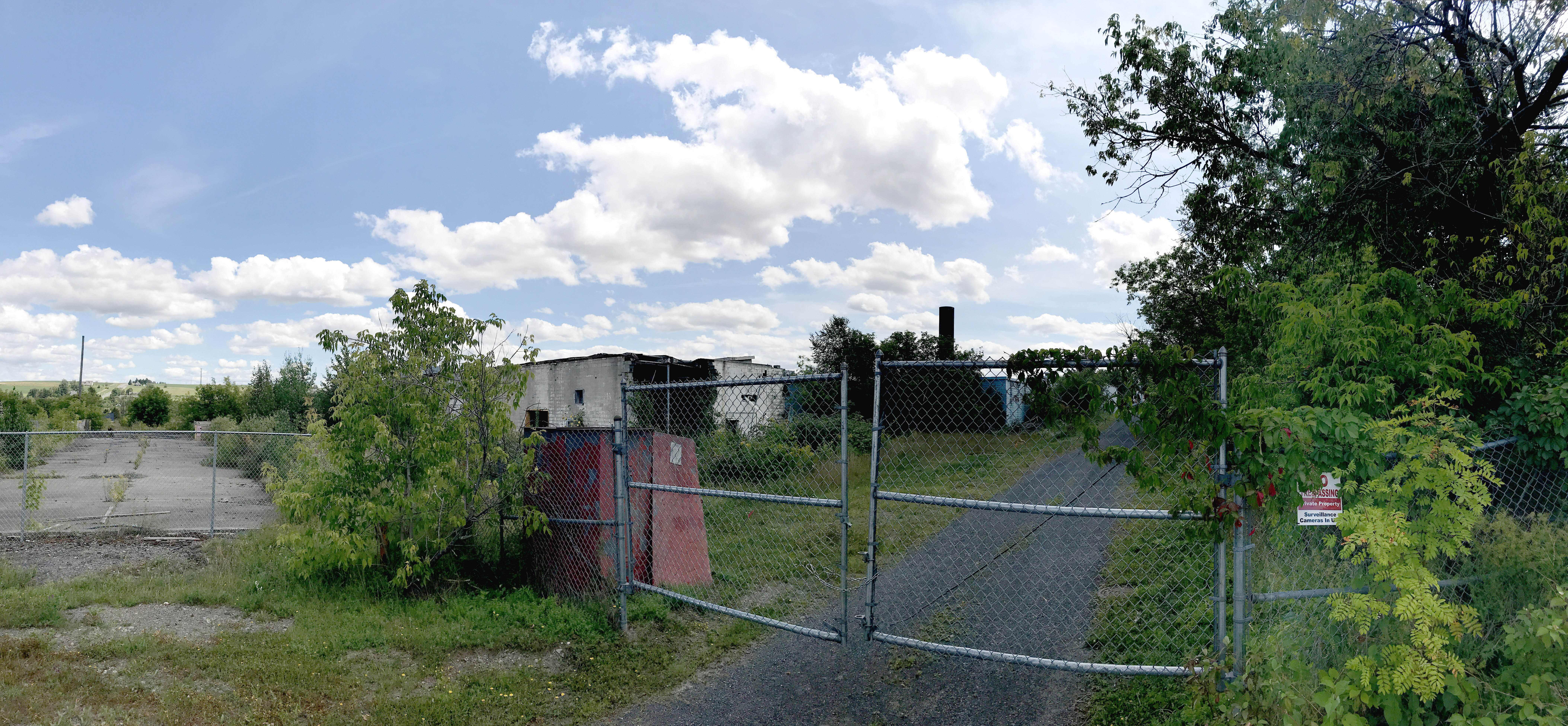
CARIBOU, Maine — Caribou City Council unanimously approved Monday applying for a $200,000 Brownfield grant from the federal Environmental Protection Agency to clean up hazardous materials at the former Birds Eye vegetable processing plant on Route 1.
The City officially acquired the property roughly one year ago, in November 2016, after property owner Steven Nasiff refused to make any repairs to the dangerous site. Since then, the Northern Border Regional Commission awarded the city a $100,000 grant to assist with tearing down and cleaning up. For that grant, the city needs to provide $20,000 in matching funds or labor to receive the $100,000.

During Monday’s Caribou Council meeting, CES, Inc. Project Geologist David Chapman summarized an EPA Brownfield grant application he prepared for the city for $200,000 to clean up hazardous materials at the former Birds Eye vegetable processing plant on Route 1 in Caribou. Councilors unanimously approved submitting the grant application. (Christopher Bouchard)
Before holding a public hearing on the EPA Brownfield grant, Caribou City Manager Dennis Marker said the $100,000 from the NBRC could be leveraged as part of the EPA grant application, which will require 20 percent in matching funds or in-kind contributions. Marker then introduced David Chapman, a project geologist with CES, Inc., a Maine-based firm of land surveyors, environmental scientists, and engineers.
Chapman prepared the 26-page application for the Brownfield grant, which is available on the city’s website. The application focuses on the amount of hazardous materials at the site and delineates a number of possible budgets and plans for removing the waste.
City Councilor David Martin, who was acting as mayor in lieu of Gary Aiken, who was ill and could not attend the Nov. 13 meeting, asked Chapman when the EPA would announce the grant winners.
“There is no concrete date,” Chapman said, “but it would be at some point in the spring.”
Martin then asked how long it would take to remove all hazardous materials from the site.
“There is a three year window where the work takes place,” Chapman said. “It will either be three years or until all the funds are used.”
Marker asked what about the estimated costs for cleaning up the entire site.
“I don’t believe we’ve actually looked into that,” Chapman said. “The total for the entire application, the highest you can get is $200,000. We estimate cleaning up the entire site will cost more than that, but there are specific tasks we can accomplish with [$200,000].”
The geologist said the main focus is removing hazardous material and targeting specific areas of the site that raise safety concerns.
Marker said he’s seen reports indicating that, altogether, the cost for cleaning up the entire site will be more than $500,000, and Chapman agreed that the total costs would be significantly higher than what the Brownfield grant would provide.
“It will cost significantly more than $200,000 to clean up the whole site,” Chapman said, “but with that grant, we can make a serious dent.”
No other members of the public took the podium, and Martin closed the hearing after roughly five minutes.







